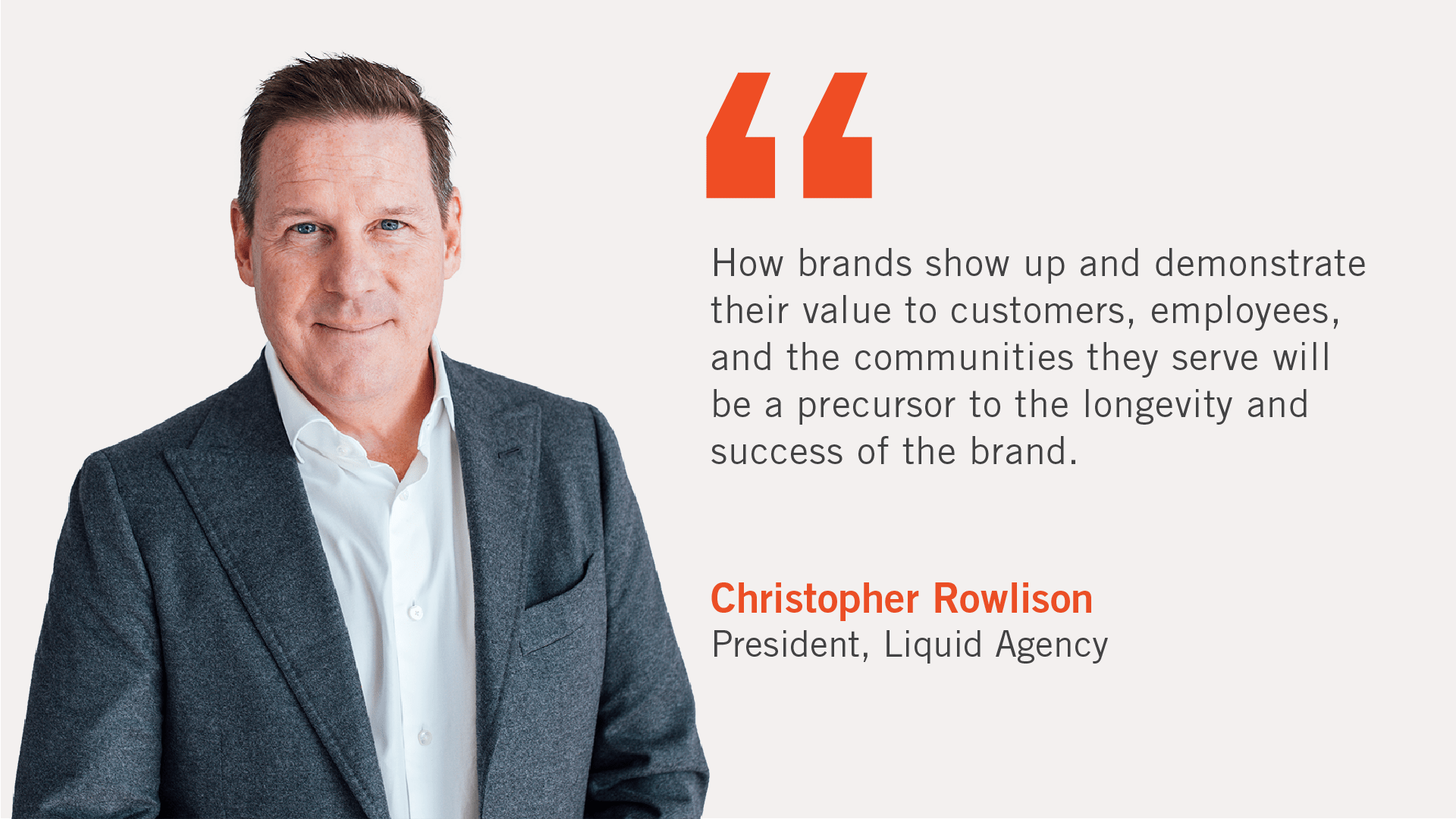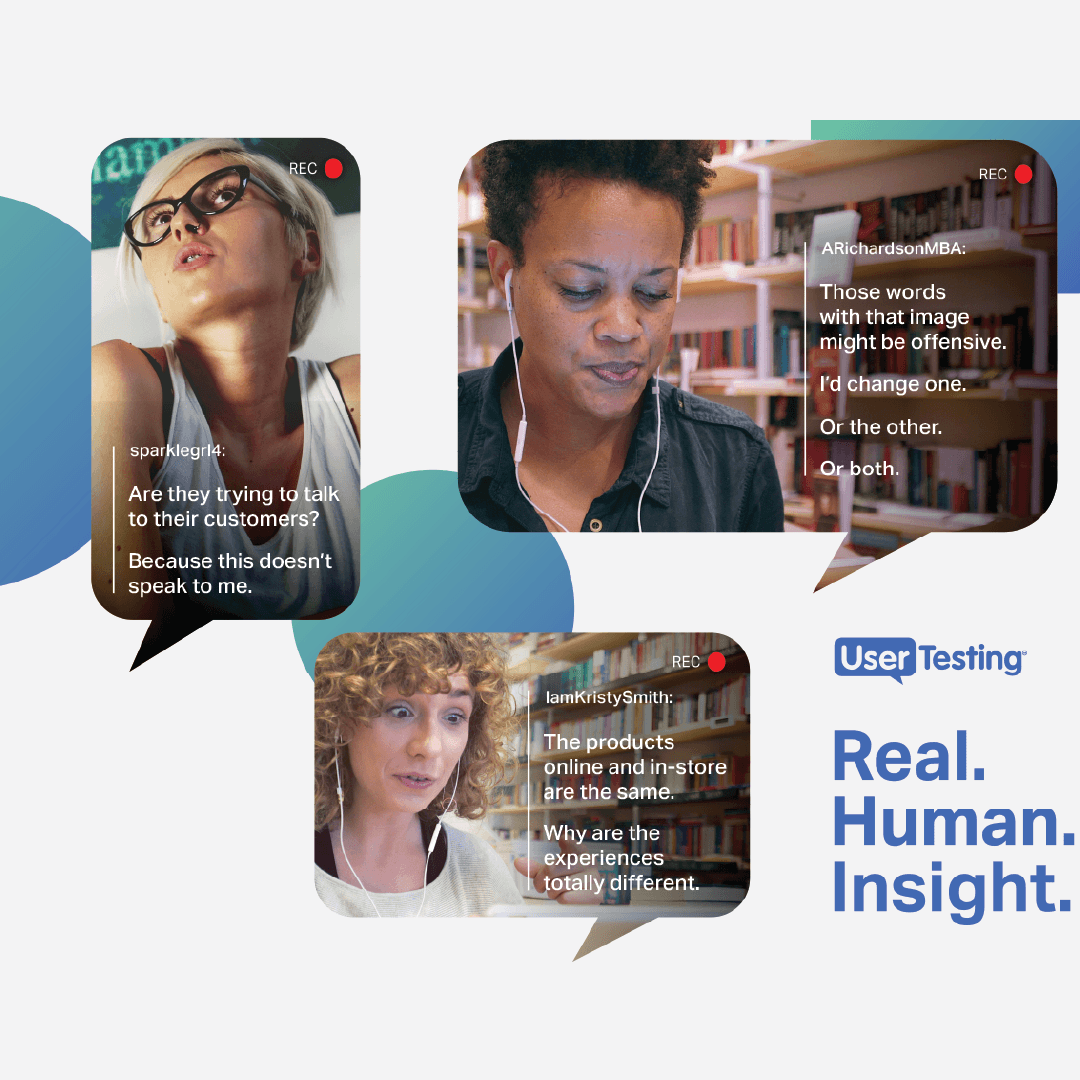Post-trends Report: Finding Advantages in Adaptation
We’ve heard a lot about the intimidating unknowns of the “new normal.” It’s time to talk about why embracing an adaptation mindset is ultimately to our advantage.

The Role of Adaptability in a Global Pandemic.
Adaptability is the ability to see and react and iterate, even if the first attempt isn’t perfect right out of the gate. It’s about moving in the right direction instead of planting one’s feet firmly in the past and refusing to budge from “what we’ve always done” or “what has always worked.” Now that we’ve all had to adapt from physical interactions to a purely digital discourse, it’s important that we avoid what one CEO described as “paralysis analysis.” Companies are sometimes scared to move, and that’s especially true when the market—and the world—has turned inside out and upside down due to a global pandemic.
We all recognize that the recent global pandemic has profoundly changed the fabric of life we had previously taken for granted. It forced us all to adapt quickly to fully online business models, no matter how entrenched we once were in the way things previously operated. We could develop some new marketing buzzwords to satisfy what the market needed at the moment (looking at you, “new normal”), but thriving and sustainable brands never take a short-term outlook. They continually look for opportunities to change alongside an ever-evolving market.
Only six months ago, I published a trend report for 2020—and how humbling it is to take stock of predictions so early in the year. As I reflected on the abrupt and large-scale shifts our society has had to make these last four months, I recognized just how important it has been for companies to adapt—to recognize challenges and reassess and iterate and change, even if it’s not initially perfect—until they do get it right.
I believe three essential elements will guide all of us in both the physical and digital worlds as we navigate the future. Adaptability, especially when centering empathy and trust, will be inherent in lasting and sustainable leadership moving forward.
Adaption Reveals New Opportunities.
The modern enterprise will be sustained through its ability to adapt. Look how quickly we changed from in-person office environments to working from home when we were left with no other choice. Although the switch hasn’t been easy and has had its challenges, I see so many examples where it has enhanced productivity and the reachability of businesses to clients, employees and prospective consumers. In adapting to new circumstances, we can uncover hidden opportunities and quickly act on them.
At Liquid Agency, we needed to adapt our Swarms (our version of workshops) from in-person to fully virtual. We had previously scheduled an in-person Swarm with a client in April, but it soon became clear that wasn’t an option after we began to shelter in place. So we adapted. Our team crafted a way to collaborate in real time, create breakouts, solicit feedback and drive participation through Zoom and Miro. When we adapted this one Swarm, we also grew our prospective market: we can now readily provide Swarms to global companies by facilitating digital breakouts across multiple time zones.
The companies that demonstrate a flexible mindset will be the ones to inspire the future. Their adaptation will uncover new opportunities that will have a profound impact on the way the market evolves in the years to come.
When Change is Driven by Empathy, People Take Note.
Empathy may be the most important principle for companies to embrace, especially in an environment as tumultuous as the pandemic and one now fraught with protests for racial justice and equality. As business leaders, we need to be acutely aware of the impact such worldwide changes have on our teams and their ability to be productive both personally and professionally. This extends inside and outside of business. As with any great environmental shift, the ability to understand, share feelings, tackle problems and share success will make a huge difference in the way a company and its people operate day-to-day.
One emerging example is a change in the way businesses search for talent. Since candidates will no longer be strictly confined to their geography, they’ll have a greater selection of employment. Companies that haven’t shown empathy during this time will be far more likely to see attrition, especially as modern enterprises look to bring on talent in areas outside their standard footprint.
In working with one of our Silicon Valley clients, we’ve reconsidered the key aspects of employee experience and internal communications. The best talent may not be 10 miles away, but rather 10 states. Now that anyone is a prospective employee, companies must show a willingness to adapt to their needs to be considered more than just another prospective employer.
Active Transparency Builds Trust. Silence Undermines It.
I touched on this during our trends report back in January, which may prove to be one of the biggest drivers of brand success during the second half of 2020 and into 2021. How brands show up and demonstrate their value to customers, employees and the communities they serve will be a precursor to the longevity and success of the brand.
At Liquid Agency, for example, we’ve been supporting one of our largest clients on quick-turn internal communications and external notifications. We innovated by using social channels like Instagram to communicate new service levels and changing protocols in retail. When campaigns are openly transparent and brands voice their confidence about the future in a sensitive but sincere way, they gain the trust of consumers looking for stability in an otherwise unstable world. The ones who stay silent or rigid in their day-to-day operations risk getting swallowed by the uncertainty of the moment.
If modern enterprises ensure every touchpoint, whether internal or external, is created to build trust and transparency in their brand, they will inspire greater loyalty in their consumers—even while they continue to adapt to new and unknown circumstances.
I’m not sure what the next 100 days will bring, but I’m confident that if we adapt, interact with empathy and make sure we are building trust, we will emerge from this year stronger than we were before.
The Role of Adaptability in a Global Pandemic.
Adaptability is the ability to see and react and iterate, even if the first attempt isn’t perfect right out of the gate. It’s about moving in the right direction instead of planting one’s feet firmly in the past and refusing to budge from “what we’ve always done” or “what has always worked.” Now that we’ve all had to adapt from physical interactions to a purely digital discourse, it’s important that we avoid what one CEO described as “paralysis analysis.” Companies are sometimes scared to move, and that’s especially true when the market—and the world—has turned inside out and upside down due to a global pandemic.
We all recognize that the recent global pandemic has profoundly changed the fabric of life we had previously taken for granted. It forced us all to adapt quickly to fully online business models, no matter how entrenched we once were in the way things previously operated. We could develop some new marketing buzzwords to satisfy what the market needed at the moment (looking at you, “new normal”), but thriving and sustainable brands never take a short-term outlook. They continually look for opportunities to change alongside an ever-evolving market.
Only six months ago, I published a trend report for 2020—and how humbling it is to take stock of predictions so early in the year. As I reflected on the abrupt and large-scale shifts our society has had to make these last four months, I recognized just how important it has been for companies to adapt—to recognize challenges and reassess and iterate and change, even if it’s not initially perfect—until they do get it right.
I believe three essential elements will guide all of us in both the physical and digital worlds as we navigate the future. Adaptability, especially when centering empathy and trust, will be inherent in lasting and sustainable leadership moving forward.
Adaption Reveals New Opportunities.
The modern enterprise will be sustained through its ability to adapt. Look how quickly we changed from in-person office environments to working from home when we were left with no other choice. Although the switch hasn’t been easy and has had its challenges, I see so many examples where it has enhanced productivity and the reachability of businesses to clients, employees and prospective consumers. In adapting to new circumstances, we can uncover hidden opportunities and quickly act on them.
At Liquid, we needed to adapt our Swarms (our version of workshops) from in-person to fully virtual. We had previously scheduled an in-person Swarm with a client in April, but it soon became clear that wasn’t an option after we began to shelter in place. So we adapted. Our team crafted a way to collaborate in real time, create breakouts, solicit feedback and drive participation through Zoom and Miro. When we adapted this one Swarm, we also grew our prospective market: we can now readily provide Swarms to global companies by facilitating digital breakouts across multiple time zones.
The companies that demonstrate a flexible mindset will be the ones to inspire the future. Their adaptation will uncover new opportunities that will have a profound impact on the way the market evolves in the years to come.
When Change is Driven by Empathy, People Take Note.
Empathy may be the most important principle for companies to embrace, especially in an environment as tumultuous as the pandemic and one now fraught with protests for racial justice and equality. As business leaders, we need to be acutely aware of the impact such worldwide changes have on our teams and their ability to be productive both personally and professionally. This extends inside and outside of business. As with any great environmental shift, the ability to understand, share feelings, tackle problems and share success will make a huge difference in the way a company and its people operate day-to-day.
One emerging example is a change in the way businesses search for talent. Since candidates will no longer be strictly confined to their geography, they’ll have a greater selection of employment. Companies that haven’t shown empathy during this time will be far more likely to see attrition, especially as modern enterprises look to bring on talent in areas outside their standard footprint.
In working with one of our Silicon Valley clients, we’ve reconsidered the key aspects of employee experience and internal communications. The best talent may not be 10 miles away, but rather 10 states. Now that anyone is a prospective employee, companies must show a willingness to adapt to their needs to be considered more than just another prospective employer.
Active Transparency Builds Trust. Silence Undermines It.
I touched on this during our trends report back in January, which may prove to be one of the biggest drivers of brand success during the second half of 2020 and into 2021. How brands show up and demonstrate their value to customers, employees and the communities they serve will be a precursor to the longevity and success of the brand.
At Liquid, for example, we’ve been supporting one of our largest clients on quick-turn internal communications and external notifications. We innovated by using social channels like Instagram to communicate new service levels and changing protocols in retail. When campaigns are openly transparent and brands voice their confidence about the future in a sensitive but sincere way, they gain the trust of consumers looking for stability in an otherwise unstable world. The ones who stay silent or rigid in their day-to-day operations risk getting swallowed by the uncertainty of the moment.
If modern enterprises ensure every touchpoint, whether internal or external, is created to build trust and transparency in their brand, they will inspire greater loyalty in their consumers—even while they continue to adapt to new and unknown circumstances.
I’m not sure what the next 100 days will bring, but I’m confident that if we adapt, interact with empathy and make sure we are building trust, we will emerge from this year stronger than we were before.
Christopher Rowlison, President
 CR enjoys the dynamic and evolving nature of the agency business, and he is committed to staying ahead of the market and blending what brands should be focused on today and in the future. CR is passionate about a customer-first approach to the business and working to make our clients achieve their business success with an expertise in digital experience, transformation, and culture design. As a result, Liquid has built long-lasting relationships with some of the most successful companies in the world, and attracts amazing talent and delivers innovative, effective, award-winning work.
CR enjoys the dynamic and evolving nature of the agency business, and he is committed to staying ahead of the market and blending what brands should be focused on today and in the future. CR is passionate about a customer-first approach to the business and working to make our clients achieve their business success with an expertise in digital experience, transformation, and culture design. As a result, Liquid has built long-lasting relationships with some of the most successful companies in the world, and attracts amazing talent and delivers innovative, effective, award-winning work.

